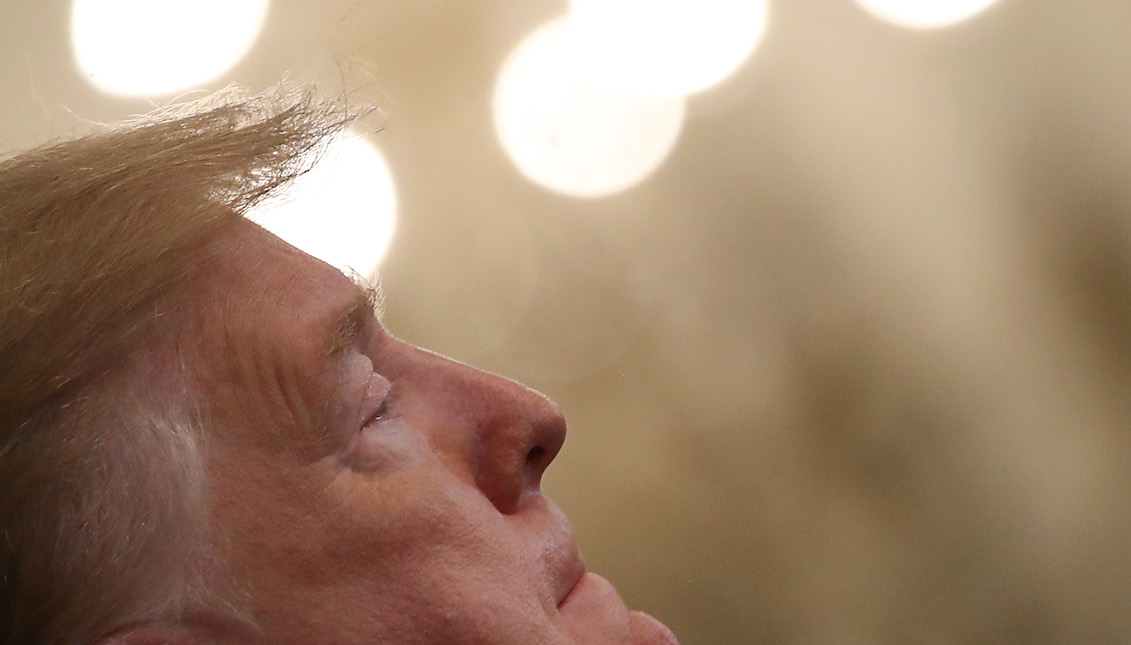
Congress vs. The White House: A Constitutional Crisis?
Contrary to what the Republican Party would like, the Mueller investigation seems to be just beginning. Although the special counsel made his findings public,…
After the public learned of the disagreements between the special counsel Robert Mueller and Attorney General William Barr on the intelligence investigation, the report has served as a road map for subsequent inquiries by the Democratic Party.
Having a majority in the House of Representatives and, therefore, in the Judicial Investigation Committees, Nancy Pelosi and the rest of the Party have requested many documents regarding the Mueller report, including its redactions-free version.
But both the Justice Department and the White House have decided to block any attempt to publish documents or to hold future hearings.
The question we ask ourselves is: if the president and the GOP really believe that the investigation "exonerated" them, why oppose Congress doing its job?
The leader of the Republican majority in the Senate, Mitch McConnell, said on Tuesday: "case closed" and that the country "is ready to join and face the real challenges before us."
"Would we finally be able to move on from partisan paralysis and breathless conspiracy theorizing?" he asked. "Or would we remain consumed by unhinged partisanship, and keep dividing ourselves to the point that Putin and his agents need only stand on the sidelines and watch as their job is done for them? Unfortunately, I think the answer is obvious."
Very much in spite of the "obviousness" highlighted by McConnell, the case may not be closed at all.
The Mueller report not only determined that Russia aggressively interfered in the 2016 presidential election in favor of Trump, but that it got away without much retaliation, and that the president who now sits in the Oval Office thanks to Moscow's help holds constant conversations with Putin, without witnesses that can give faith of what's being discussed.
Likewise, Mueller made explicit ten episodes in which the president tried to obstruct justice when the investigation into Russian interference began, including ploys to dismiss the special counsel.
But the Department of Justice's statutes prevented Mueller and his team of investigators from issuing a guilty plea against the incumbent president, which allowed both Barr and the rest of the Republican Party to come to their own conclusions and to close the case as quickly as possible.
However, both Democrats and hundreds of former Justice Department lawyers believe that Donald Trump is guilty and must be prosecuted for obstruction of justice.
RELATED CONTENT
Top-ranking politicians such as Senator and presidential candidate Elizabeth Warren have stated impeachment procedures against Trump should start; Sen. Kamala Harris has also opined that Barr should resign after it became clear that his role is not that of Attorney General of the American people, but the president's personal lawyer.
Meanwhile, 566 federal prosecutors and former attorneys from the Justice Department - including two former heads of the criminal division in the Southern District of New York - published an open letter stating "President Trump seems to have committed numerous crimes" and, not being commander in chief, he would have already been accused.
In summary, the specialists outline the legal procedure to follow: impeachment.
The open dispute between Congress and the White House seems to be closing by the second, while the president introduces lawsuits right and left, and the House begins to consider contempt proceedings against the Attorney General.
For the legal lecturer at Georgetown University, Victoria Nourse, this could lead to "a real constitutional crisis."
Nourse told AP: "I don't see any legitimate ground for the executive to be pushing back against Mueller's testimony," referring again to the reticence of the president and his associates to the special counsel's appearance before the House Committee to explain in his own words the findings of his investigation.
"Again, to do that, they'd also perhaps support it with this unitary executive theory that all members of the executive branch are under the president's authority and therefore he can order him not to testify. Mueller's response to that, I expect, would simply to resign."
But the problem is that this tug-of-war between the two branches of the government could come to a standstill in the courts.
However, the last president to refuse to respond to subpoenas from the House was Richard Nixon, and we already know how that story ended.











LEAVE A COMMENT:
Join the discussion! Leave a comment.